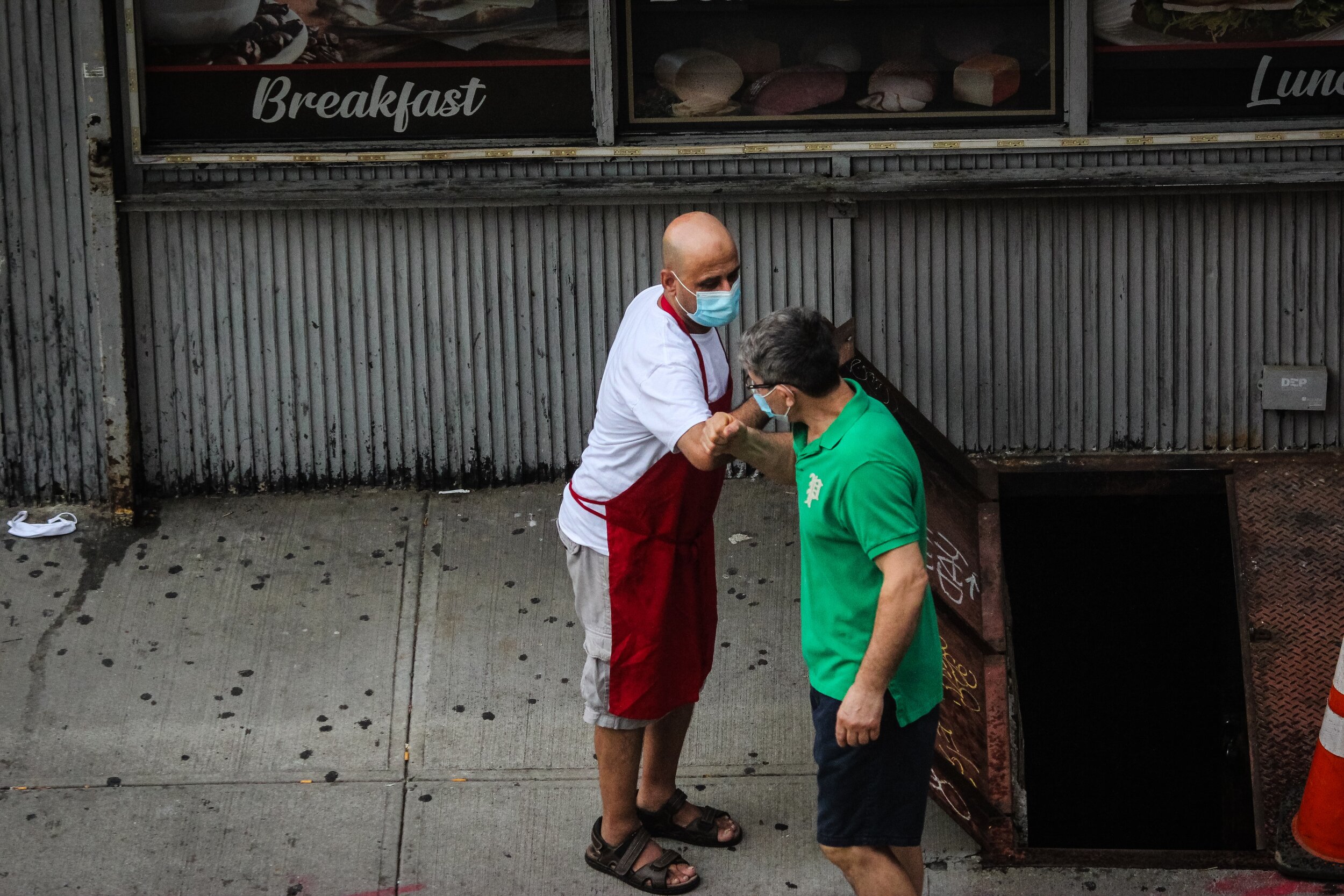Needle phobia is common and help is out there
About 1 in 4 people exhibit a stress reaction to needles, including an automatic urge to avoid.Time-limited exposure therapy can help to address this key contributor to Covid-19 vaccine hesitancy.Learn more about key strategies for managing needle phobia.

Let’s face it, just like people try to avoid getting stung by wasps, they also avoid getting shots. A large-scale study by the University of Oxford found that 26% of adults screened positive for injection phobia, with those in this group twice as likely to report hesitancy to get the Covid-19 vaccine. If all needle anxiety was eradicated, it’s possible that vaccination rates could increase by up to 16 percent. With Covid-19 vaccination rates worldwide stalling, this is a critical area to address to reach herd immunity and prevent further surges, reduce the spread of variants, and get on with our lives.
Skepticism, distrust, and politicization of the vaccine exist, certainly. But what is likely underreported is the wide prevalence of needle phobia and medical anxiety underlying vaccine hesitancy. It’s much less vulnerable to say, “I’m healthy, I don’t need a vaccine,” than “Truth is, I’m terrified of needles.”
Here’s the good news: unlike political distrust, needle phobia is treatable. The issue is not that we can’t treat it, it’s that there are so many barriers to treatment: affordability, stigma, lack of access, and lack of awareness (in both the medical field and public). Cognitive Behavioral Therapy (specifically, exposure therapy with applied tension) has been shown to be effective for the treatment of needle phobia. For example, in a 2018 study among highly needle fearful individuals, 70% completed a successful blood draw after just one group CBT session. Exposure-based CBT is a method of empowering you to confront your fears safely and gradually, always with you in control.
Importantly, needle anxiety is not just on the individual to figure out. We must figure out how to deliver healthcare in more equitable and empathic ways that take into account different people’s needs. We also must acknowledge our country’s history of medical mistreatment and apathy, which has disproportionately affected people of color and contributes to medical anxiety. While CBT is in no way a solution to these systemic root causes, it provides a practical, targeted treatment to empower access to healthcare for the millions with needle anxiety. The Covid-19 vaccine nasal spray, which is being developed for those with needle anxiety, will be available around 2023, but we don’t have the time to wait.
For millions of Americans, vaccinations are not “just a poke.” Don’t judge people who aren’t yet vaccinated; let’s work together to deliver inclusive care for all.

What is Needle Phobia?
If you’re among the millions who are afraid of needles or injections, you’re likely familiar with the feelings of dread and anxiety that come with getting shots. You may have experienced symptoms like heart racing, nausea, or insomnia the night before your appointment. Some people also experience a sudden drop in blood pressure that leads to lightheadedness and fainting before, during, or after injection. Others have had negative, dismissive, or traumatic medical experiences that exacerbate needle discomfort. Naturally, if you’ve had any of these experiences, you’re more likely to avoid shots. It’s also hereditary, so if you have needle phobia, there’s an 80% chance you have a close relative with the same condition.
Most people with needle phobia, also called trypanophobia, rationally know the moment of injection itself is safe and brief, which is why it can be hard to acknowledge one’s own anxiety about injections. But even though the brain may know it’s safe, the body can still exhibit a stress reaction to needles and medical settings, which for most people, includes an automatic urge to flee or avoid. Exposure therapy is a safe, effective, and confidential way to overcome needle anxiety, and you can find out how to sign up for free below.

To the Public, here’s your call to action:
We need to bang some pots and pans to raise awareness about needle anxiety. An estimated 10-25% of adults have needle phobia, and these numbers are even higher in children and adolescents. Start talking about needle anxiety with others. Know that in as little as a few hours, you can get the tools you need to confront healthcare goals such as vaccination. Be a support person for someone with needle phobia by holding their hand and walking them through our top strategies for managing needle phobia. With up to 1 in 4 people suffering from needle phobia, someone you know is having a hard time getting vaccinated because of it. Let’s normalize it, team up, and get on with our lives.
Over the course of a lifespan, needle phobia can lead to chronic avoidance of essential medical care and poor health outcomes. Because people with needle anxiety often avoid medical care, healthcare systems tend to ignore this sizable group of the population, and the cycle continues. Nearly all Covid-19 deaths in the U.S. are now among the unvaccinated. People with needle anxiety deserve access to life-saving healthcare just as much as everyone else.
Don’t like needles?
If your needle anxiety is relatively mild (and/or motivation very high), these self-help strategies may be sufficient to get you vaccinated. You can also explore our other resources here, including our nationwide referral list for blood-injection-injury phobia specialists.
A personal story: As a mom and a psychologist, I’ve seen how powerful needle anxiety can be. I have such a vivid image of my daughter, typically so fierce and confident, reacting with terror at the sight of a nurse with needle in hand. Acting on instinct, she leapt off the examination table, ran to the corner of the pediatrician’s office, and wedged herself into the corner of the room so the nurse could not access the part of her arm just cleaned with rubbing alcohol. My little girl suddenly had the strength of a rhinoceros as she rammed her body against the wall in defiance. By coming up with comfort strategies and walking her through basic CBT steps (in a nutshell, gradually exposing her to the different components involved in vaccination: the needle, the smell of rubbing alcohol, etc. in a way in which she felt in control and understood), she now handles her routine vaccinations like a champ.

References
Freeman, D, Lambe, S, Yu, L, Freeman, J, Chadwick, A, Vaccari, C, …Loe, B. (2021). Injection fears and COVID-19 vaccine hesitancy. Psychological Medicine, 1-11.
Love AS, Love RJ. (2021). Considering Needle Phobia among Adult Patients During Mass COVID-19 Vaccinations. J Prim Care Community Health. 2021;12.
McLenon J, Rogers MAM. (2019). The fear of needles: A systematic review and meta-analysis. J Adv Nurs. 75(1):30-42.
McMurtry, CM, Noel, M, Taddio, A, Antony, MM, Asmundson, GJ, Riddell, RP, … HELPinKids&Adults Team (2015). Interventions for Individuals With High Levels of Needle Fear: Systematic Review of Randomized Controlled Trials and Quasi-Randomized Controlled Trials. The Clinical journal of pain, 31(10 Suppl), S109–S123.
McMurtry CM, Taddio A, Noel M, Antony MM, Chambers CT, Asmundson GJ, … Scott J. (2016). Exposure-based Interventions for the management of individuals with high levels of needle fear across the lifespan: a clinical practice guideline and call for further research. Cogn Behav Ther. Apr;45(3):217-35.
Orenius T, LicPsych, Säilä H, Mikola K, Ristolainen L. (2018). Fear of Injections and Needle Phobia Among Children and Adolescents: An Overview of Psychological, Behavioral, and Contextual Factors. SAGE Open Nurs. Mar 14;4.
Wannemueller, A, Fasbender, A, Kampmann, Z, Weiser, K, Schaumburg, S, Velten, J, & Margraf, J (2018). Large-Group One-Session Treatment: A Feasibility Study of Exposure Combined With Applied Tension or Diaphragmatic Breathing in Highly Blood-Injury-Injection Fearful Individuals. Frontiers in psychology, 9, 1534.
